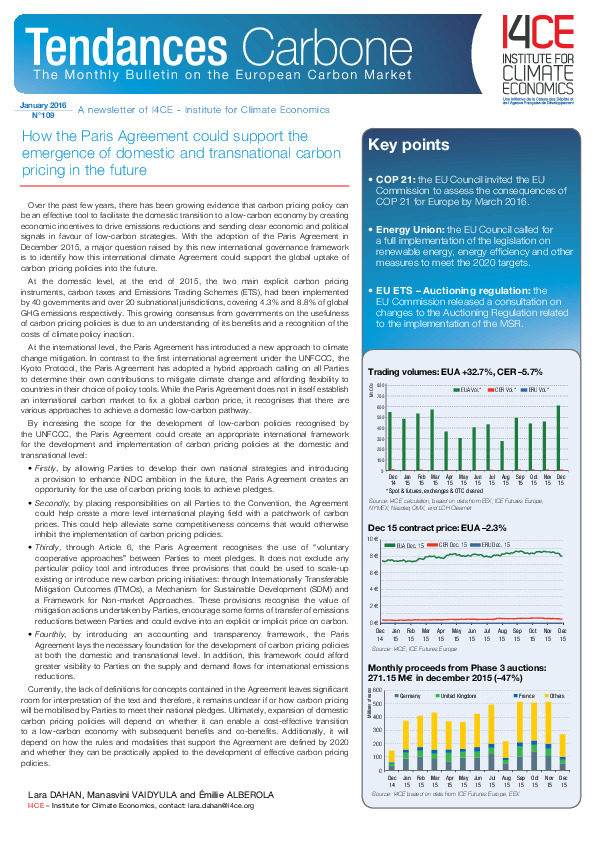How the Paris Agreement could support the emergence of domestic and transnational carbon pricing in the future
Over the past few years, there has been growing evidence that carbon pricing policy can be an effective tool to facilitate the domestic transition to a low-carbon economy by creating economic incentives to drive emissions reductions and sending clear economic and political signals in favour of low-carbon strategies.
With the adoption of the Paris Agreement in December 2015, a major question raised by this new international governance framework is to identify how this international climate Agreement could support the global uptake of carbon pricing policies into the future.
While the Paris Agreement does not in itself establish an international carbon market to fix a global carbon price, it recognises that there are various approaches to achieve a domestic low-carbon pathway.
By increasing the scope for the development of low-carbon policies recognised by the UNFCCC, the Paris Agreement could create an appropriate international framework for the development and implementation of carbon pricing policies at the domestic and transnational level.
